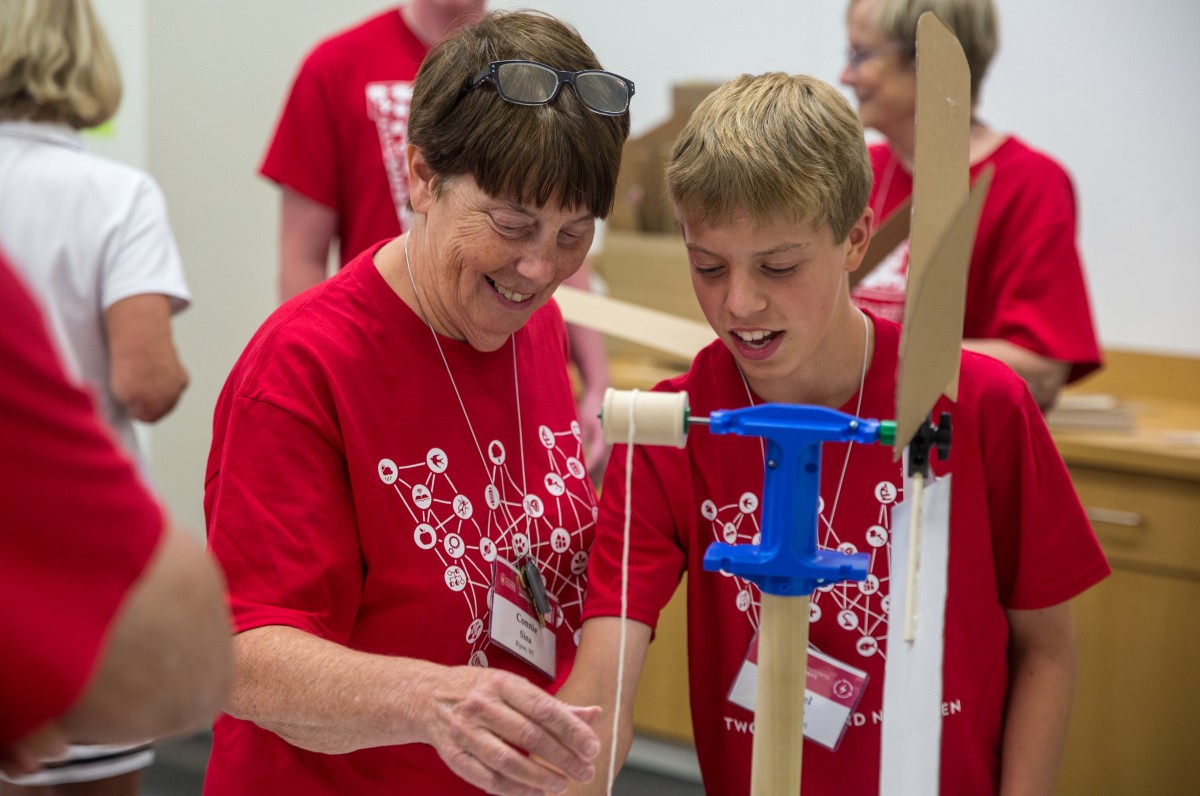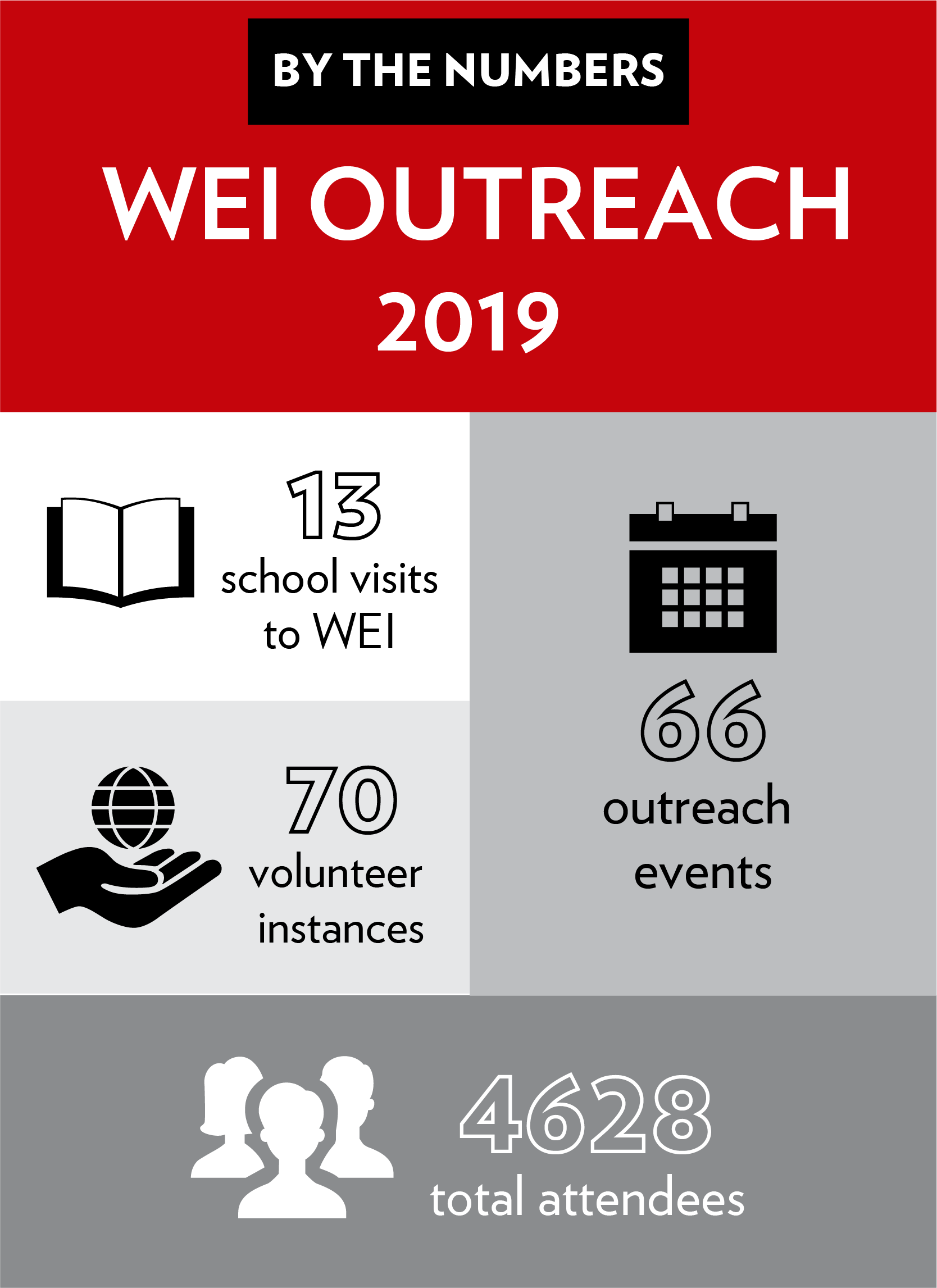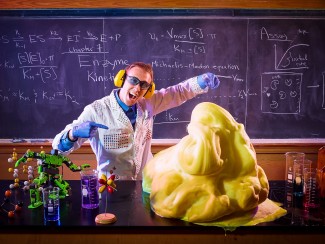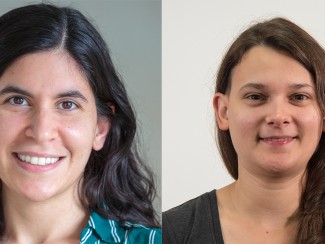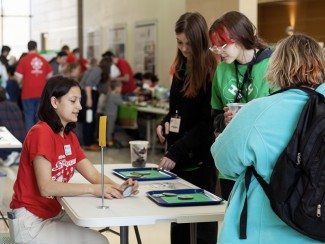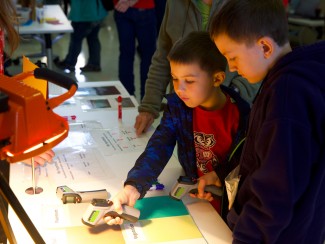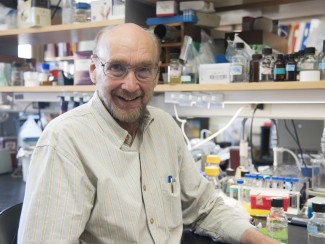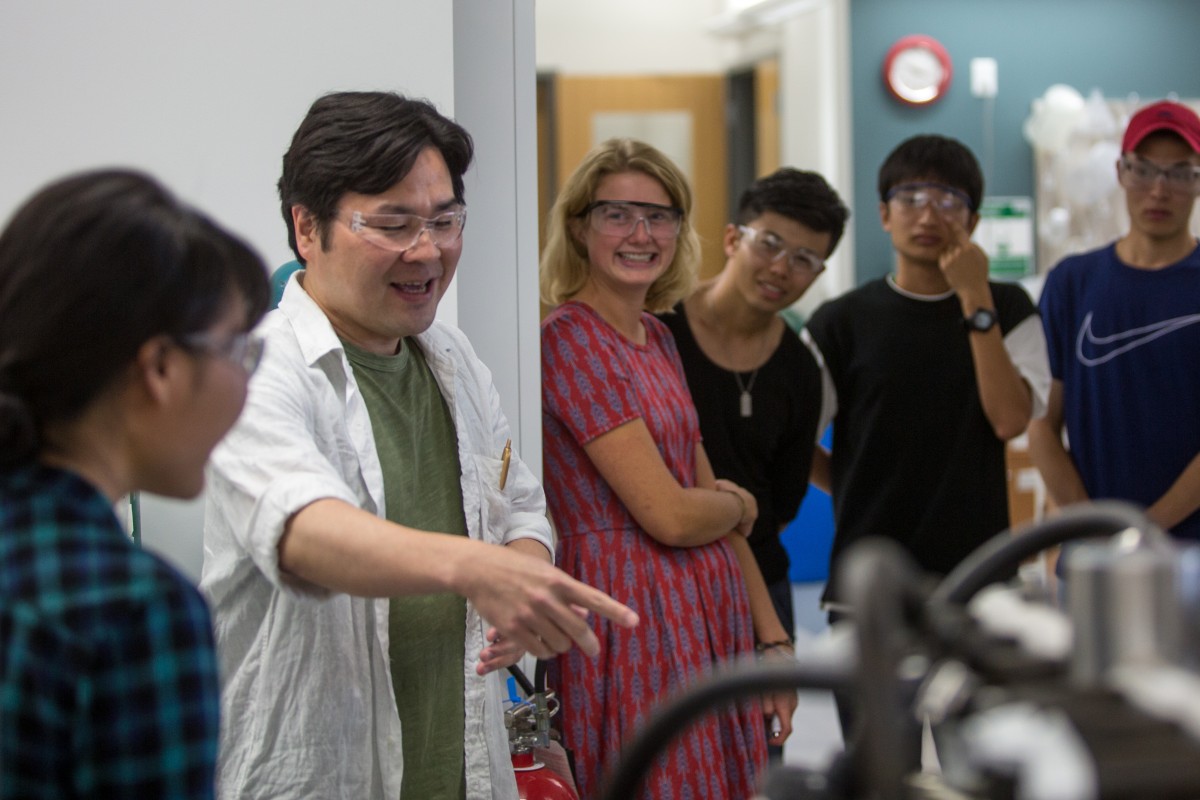
Researchers at the Wisconsin Energy Institute (WEI) work every day to develop the knowledge and technology to transition society to clean energy systems and solutions. It’s Allison Bender’s job to make sure that knowledge doesn’t stay behind campus doors.
As the WEI Outreach and Events Coordinator, Bender works with the institute’s scientists to translate their research into lessons and opportunities for K-12 students and other audiences beyond campus. She leads tours of the WEI building, teaches visiting groups—from school groups to foreign dignitaries—about renewable energy and biofuels, and organizes field trips for WEI employees. She also takes WEI’s science on the road to share with the science-curious public at school science nights, the Wisconsin Science Festival, and other outreach events.
“A really important part of the Wisconsin Idea is both welcoming people to campus and going out and sharing about the work,” Bender says. “These are solutions that people want to know about.”
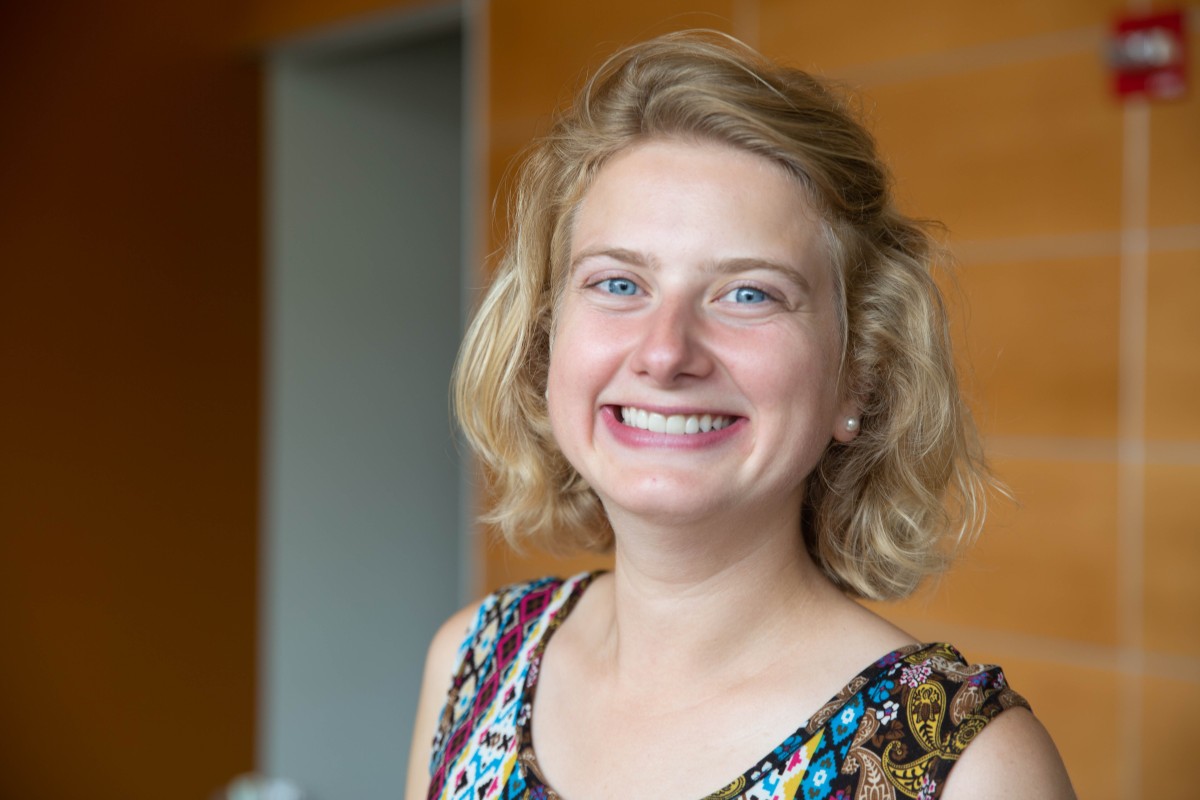
Though most people she encounters have some idea of what climate change is about, many don’t yet grasp the science behind it—not to mention the science of possible solutions. Bender has a variety of tools under her belt to help fill those knowledge gaps. For children, she might use hands-on activities to teach how the carbon cycle works. For adults, it might be a pop-up “Science Café,” such as a fall 2019 event held in partnership with the UW–Madison Chazen Museum of Art.
While such activities can help foster understanding of the science, others seek to build understanding between different people. At one of Bender’s favorite outreach events of the year, Grandparents University, she helped lead an oral history project in WEI’s Renewable Energy Studies course that was based on visiting students interviewing their grandparents about how energy systems were different when they were young.
“To have that intergenerational discourse, because some kids feel like ‘Well, they did this to us!’, was so touching,” Bender said. The course introduced many of the grandparents to renewable energy and gave kids a glimpse into what the world was like before we were concerned about a climate crisis. She is now working on new ideas for the Grandparents University course in 2020.
One of Bender’s favorite parts of her job is to “bridge science and the everyday people.” She sees this connection as a “hopeful place” where she can show people how UW–Madison scientists are working to address the climate crisis. This optimism helps her tackle the difficulty of conveying the sheer complexity of global climate and energy systems.
“Trying to figure out ways to teach where people can see themselves in the systems and where they can change it towards a more sustainable system is an interesting challenge,” she says. Though it is a challenge, Bender really wants the community to know that they have a place improving the sustainability of these systems at UW.
“This is your public university. You can be a part of it if you’re interested!” Bender emphasizes.
She recalls a Mendota Elementary School student whom she met last year while tabling at the school’s Back to School Resource Fair. The boy drew up a pathway to make medicine out of plants—a pathway that was remarkably similar to the one developed by a group of WEI researchers led by John Ralph, who was awarded a patent for the process over the summer. Bender gave the student her business card, and was later able to arrange a WEI lab tour for the student, his siblings, and some neighbor kids. It was a special day for both the children and scientist Steve Karlen, who worked with Ralph on the acetaminophen paper and showed the kids the lab where they tested the process. The children’s excitement and curiosity about the science they were experiencing is exactly what Bender hopes to extend to people of all ages in the Madison community.
In the upcoming year, Bender hopes to do more outreach at Madison schools that have limited access to the university campus, and to develop relationships with community centers in the city.
“I’m trying to do a better job of thinking about who we’re reaching and who we’re not,” she says. She sees a large amount of potential in the Madison community for positive climate progress—and Bender is just getting started tapping it all.
